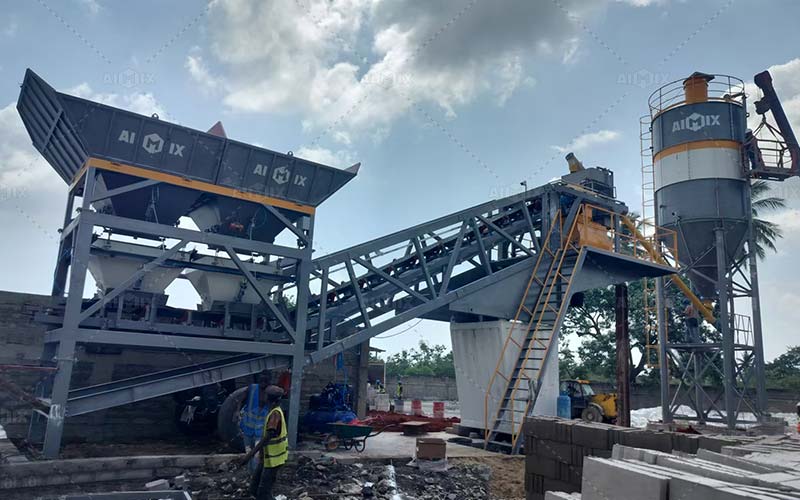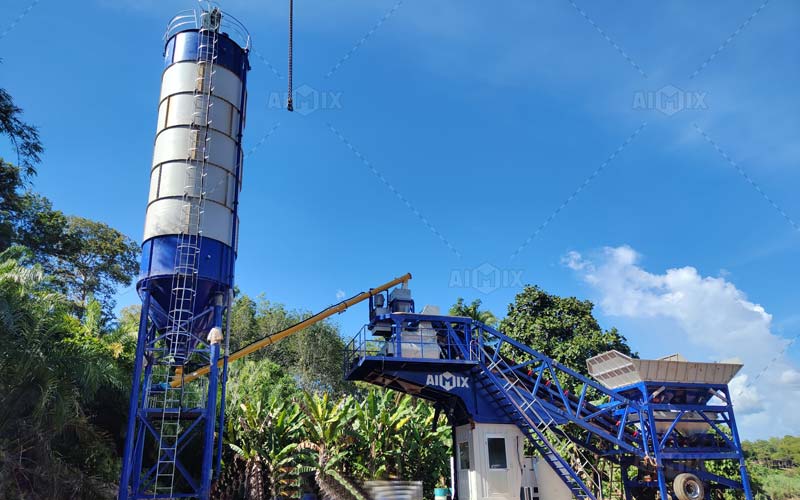Highway Construction: Why Contractors Prefer Batching Plants To Produce Concrete
The race to build robust, reliable highways isn’t a matter of speed alone—it’s about consistency, volume, and precision. In large-scale infrastructure projects, every second counts, and every cubic meter of concrete must meet the mark. That’s precisely why contractors are swapping manual mixing or mobile alternatives for modern batching plants. These centralized concrete production units are not just tools—they're logistical command centers that orchestrate construction timelines with clockwork efficiency. From urban expressways to isolated bypasses, concrete batching plants for sale are changing how roads are built—and it’s not just a trend; it’s a transformation.
Unmatched Production Efficiency and Accuracy
High Volume Meets High Velocity
Batching plants are engineered for output. Whether it’s a compact plant on the outskirts of a small town or a mega setup beside a highway corridor, these systems are built to churn out hundreds of cubic meters of concrete per hour. This scale matters—highways demand uninterrupted concrete flow, and batching plants deliver it with military-grade punctuality. The result? Fewer delays, fewer workers idling, and a pace that meets tight governmental deadlines.
Precision in Every Pour
What distinguishes a mediocre road from a motorway that lasts 30 years without major repairs? Concrete quality. Batching plants remove human error from the equation, using digital control systems to meter every input—cement, water, aggregates, admixtures—with surgical precision. Moisture sensors, automated mixing arms, and real-time adjustment algorithms keep every batch homogenous and compliant with rigid specifications. It’s not about concrete anymore; it’s about certified structural performance.

Cost Control and Resource Optimization
Fewer Wastages, Smarter Logistics
Concrete, when mismanaged, is expensive. Spillage, rework, and inaccurate mix designs can quietly erode profit margins. But mobile concrete batching plants, through centralized command, streamline raw material usage. Contractors can calibrate consumption patterns, monitor inventory digitally, and synchronize production with on-site demand. No excess. No shortfall. Just-in-time supply chains become a reality, even on miles-long highway alignments.
Labor Savings Without Compromising Output
Manual mixing crews are unpredictable. Fatigue, skill variance, and supervision challenges lead to inconsistent results. Batching plants eliminate this volatility. A handful of skilled operators can manage what previously required an entire team. This not only reduces labor costs but also improves workforce deployment—allowing skilled workers to focus on formwork, paving, and finishing instead of chasing wheelbarrows of mortar.

Scalability and Site Integration
Modular Design for Any Terrain
Highway projects don’t happen in controlled environments. Some sites are in humid coastal plains; others cut through arid plateaus. The genius of ready mix concrete batching plants lies in their modularity. Components like silos, mixers, conveyors, and control rooms can be transported and assembled anywhere. Mobile batching plants further shrink setup times and allow producers to follow the construction front as it progresses. Adaptability equals uptime.
Regulatory Compliance and Sustainability
Governments are clamping down on emissions, water wastage, and noise pollution—especially near populated corridors. Batching plants are evolving accordingly. Enclosed systems reduce dust. Recycled water loops minimize waste. Noise insulation ensures operations meet zoning requirements. Many modern batching units even come pre-certified for environmental standards, keeping contractors on the right side of compliance without the administrative burden.
Conclusion
Concrete highways are more than ribbons of gray—they're arteries of national progress. And behind every stretch of high-performance pavement is a batching plant turning out precision-mixed concrete like clockwork. Contractors don’t prefer batching plants out of convenience. They choose them because they’re mission-critical assets. In the brutal economics of road-building, control, consistency, and compliance are the currencies of success—and batching plants deliver all three without compromise.

